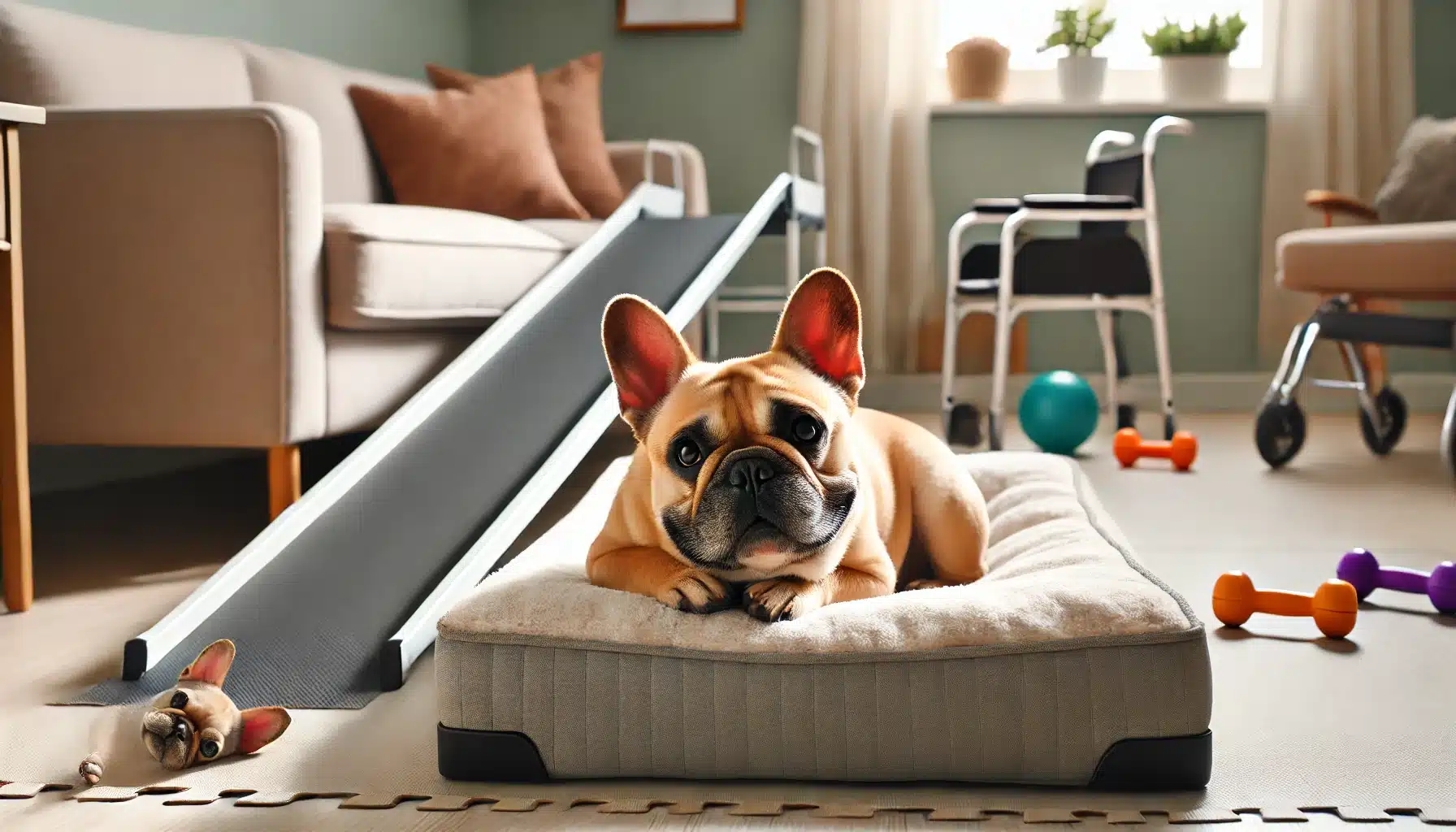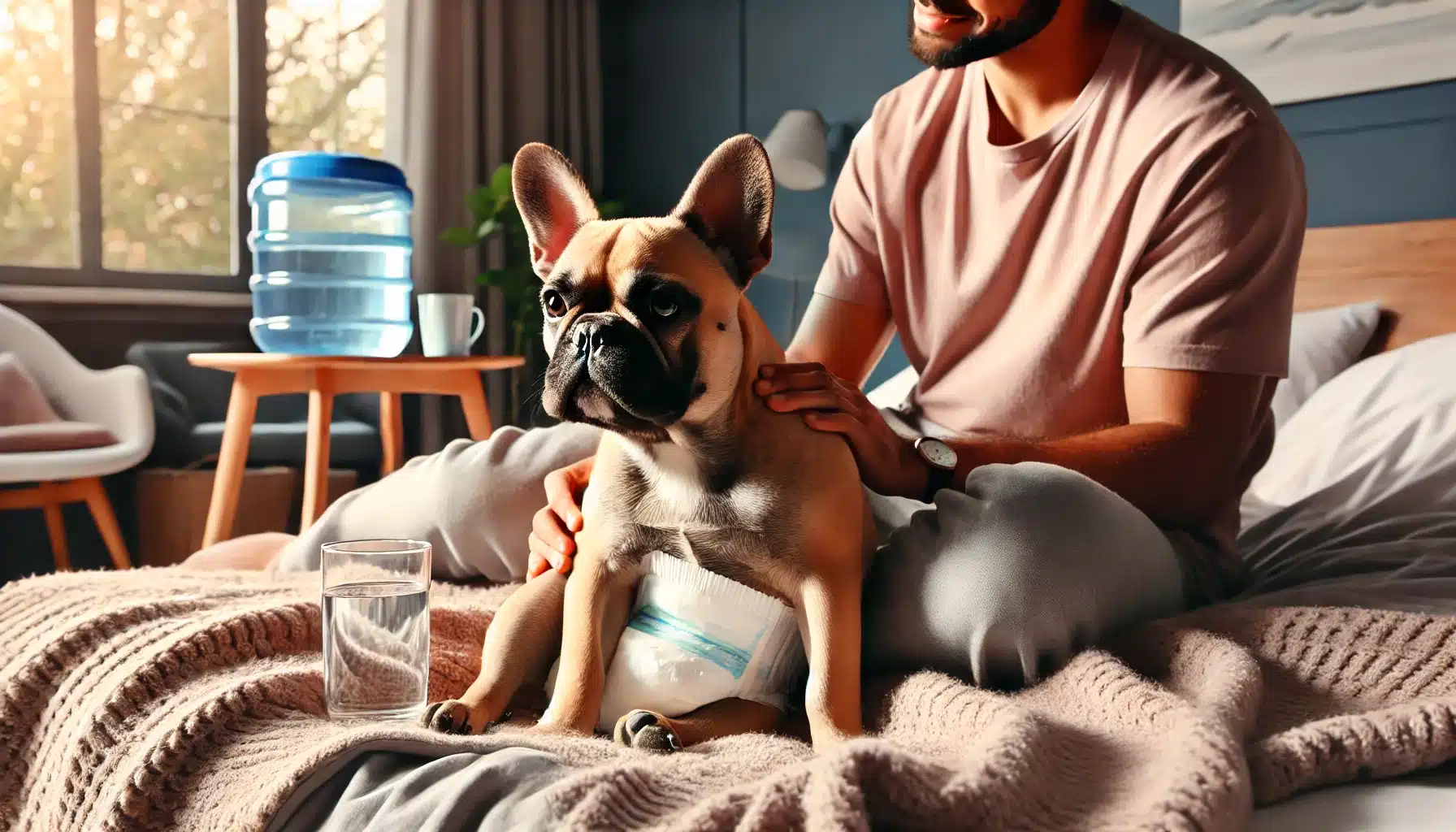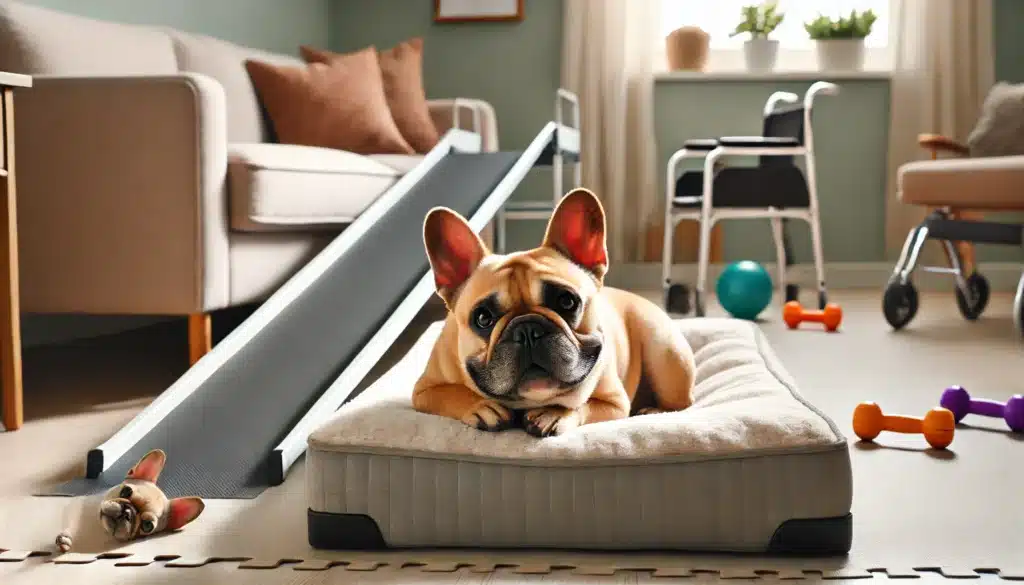When I first heard about Intervertebral Disc Disease (IVDD), I didn’t realize how much it could impact the lives of our beloved French Bulldogs. I have always adored their quirky faces, bat-like ears, and playful personalities. But I quickly learned that IVDD is a condition that all Frenchie owners, including me, must understand.
In this article, I’ll walk you through everything I’ve learned about IVDD, how it affects French Bulldogs, and what we can do to keep them healthy and happy.
What Exactly is IVDD?
IVDD, or Intervertebral Disc Disease, is a spinal condition that affects the cushion-like discs between the vertebrae. These discs work like jelly donuts, absorbing shocks and supporting the spine. In dogs with IVDD, these discs degenerate over time or get injured, leading to pain, mobility issues, and even paralysis.
For French Bulldogs, IVDD is especially common due to their genetic predispositions and unique body structure. Their adorable compact bodies and short legs, which make them so popular, also put extra strain on their spines.
How Does IVDD Happen?
From what I’ve observed and researched, there are a few key causes of IVDD:
- Genetic Predisposition: Breeds like French Bulldogs and Dachshunds are more prone to IVDD due to inherited traits.
- Spinal Wear and Tear: Over time, the discs can lose their flexibility, making them more likely to rupture.
- Injuries or Strain: Jumping off furniture, climbing stairs, or even sudden movements can cause a slipped disc.
For me, understanding these causes was crucial. It allowed me to take proactive steps to protect my Frenchie from unnecessary risks.
Recognizing Symptoms of IVDD in French Bulldogs
One of the most important lessons I’ve learned is to keep an eye out for the early signs of IVDD. French Bulldogs can’t tell us they’re in pain, so it’s up to us to notice their discomfort.
Here are some common symptoms I’ve noted:
- Reluctance to jump, climb stairs, or move around.
- Dragging back legs or “wobbly” walking.
- Crying out in pain, especially when picked up.
- Arched back or a tense belly.
- Changes in behavior, like withdrawal or aggression.
If I notice any of these symptoms, I know it’s time to contact my vet immediately. Early detection is key to managing IVDD effectively.
How is IVDD Diagnosed?
When my Frenchie showed signs of IVDD, I knew I had to act fast. My vet recommended diagnostic imaging like X-rays, MRI, or CT scans to confirm the condition. These tools help identify the affected discs and determine the severity of the problem.
It’s also vital to have an experienced veterinarian or a neurologist involved. Their expertise ensures that the right treatment plan is in place for my dog’s specific needs.
Treatment Options for IVDD
After diagnosis, I explored various treatment options to help my Frenchie recover. The approach depends on the severity of the condition, but here’s what I learned:
- Conservative Management:
- Rest and crate confinement for at least 4-6 weeks.
- Medications like anti-inflammatories and muscle relaxants.
- Gentle leash walks for bathroom breaks only.
- Surgical Intervention:
- Recommended for severe cases, especially when there’s paralysis or persistent pain.
- Surgery aims to remove the damaged disc material and relieve spinal cord compression.
- Rehabilitation Therapies:
- Physiotherapy, hydrotherapy, and laser therapy have shown great results.
- Acupuncture is another option for managing pain and improving mobility.
For my Frenchie, conservative management worked wonders, but every case is different. Consulting with the vet helped me choose the best course of action.
Preventing IVDD in French Bulldogs
Prevention became my top priority after learning about IVDD. Here’s what I do to reduce the risk for my Frenchie:
- Maintain a Healthy Weight: Extra weight puts unnecessary strain on their spine.
- Avoid High-Impact Activities: I use ramps instead of letting my Frenchie jump off furniture.
- Create a Safe Environment: Orthopedic bedding and non-slip floors are a must.
- Regular Checkups: Frequent vet visits help catch any early signs of spinal issues.
- Balanced Diet and Exercise: I ensure my dog gets the right nutrients and gentle exercise to keep their muscles strong.
These small changes in daily life make a big difference in preventing IVDD and improving overall spinal health.
My Take on Managing IVDD Long-Term
Living with IVDD requires patience and commitment. For me, it’s about ensuring my Frenchie enjoys a good quality of life. Regular physiotherapy sessions, a supportive harness, and plenty of love keep my dog happy and comfortable.
The journey can be challenging, but seeing my Frenchie wagging their tail and enjoying life makes it all worth it.
Frequently Asked Questions
1. What is IVDD, and how does it affect French Bulldogs?
IVDD is a spinal condition where the discs between the vertebrae degenerate or rupture, causing pain and mobility issues. French Bulldogs are prone to this due to their genetic predispositions and unique body structure.
2. What are the early signs of IVDD in French Bulldogs?
Look for reluctance to jump, wobbly walking, dragging back legs, and crying out in pain. Early detection is crucial for effective treatment.
3. Can IVDD be prevented in French Bulldogs?
While it can’t be entirely prevented, maintaining a healthy weight, avoiding high-impact activities, and creating a safe environment can reduce the risk.
4. What treatments are available for IVDD?
Treatment options include conservative management with rest and medications, surgical intervention for severe cases, and rehabilitation therapies like hydrotherapy and acupuncture.
5. How successful is IVDD treatment in French Bulldogs?
The success rate depends on the severity of the condition and the treatment approach. Early detection and prompt care significantly improve the chances of recovery.
Final Thoughts
IVDD in French Bulldogs is a serious condition, but it’s manageable with the right knowledge and care. As a Frenchie owner, I’ve learned the importance of being proactive about their health. By understanding IVDD and taking preventive measures, I can ensure my furry friend leads a happy and pain-free life.
If you’re a fellow dog lover, always remember: early detection and prompt action make all the difference! Let’s keep our Frenchies healthy and thriving.







